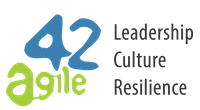This year the Toronto Agile Conference (TAC2017) focused on “Modern Agile”, which was defined by four guiding principles:
The ultimate goal is to get better results faster. However, the biggest challenge lies in having a sustainable Agile transformation to obtain these results. Therefore, the question to consider is “Why Agile Transformations Fail?”.
Gil Broza, the author of “The Agile Mindset” and “The Human Side of Agile,” introduced the concept of fostering an Agile mindset and revealed the common impediments hindering its adoption. Here, I have rounded up the three most common pitfalls:
1. We try to get it right the first time.
Many people hold onto the belief that building an elaborate plan, outlining all the details to make a decision upfront, is the right approach. In other words, you have one shot in making that goal; otherwise, the game is over. Consequently, the Product Backlog is filling up, but only one or two items are turned into running tested features.
2. We standardize.
Teams fall back into a standardized Agile routine – doing things for the sake of doing them. For instance, teams turn the daily Scrum event into a status report meeting. Members list out what is on their plate for the day; thus, ignoring that the purpose of the Daily Scrum is to inspect and adapt.
3. We prioritize efficiency.
Agile is being sold as having teams churn out work faster with progress being shown regularly. Thus, organizations would put together cross-functional teams, remove certain process requirements, and set a fixed deadline. Then, they would expect to see immediate results because they have increased their speed to completion. Contrary to their belief, the product still fails because they didn’t deliver what matters to the customer.
So does your team and company fall into the same pitfalls? Even if this is the case, we need to understand that mastering agile requires a lot of time. Many things need to be unlearned, and much effort has to be invested in accepting to start anew. Additionally, we have to fight off the influence of existing constraints and habits ingrained in our organization’s culture.
This means that taking a prescribed path to attain Agile transformation does not work. Instead, agile42 takes on the approach of looking at the organizational context first, before selecting the right agile practices and tools.
Tell us your greatest agile challenge here, so that we can equip you with the necessary tools for a successful Agile transition.


